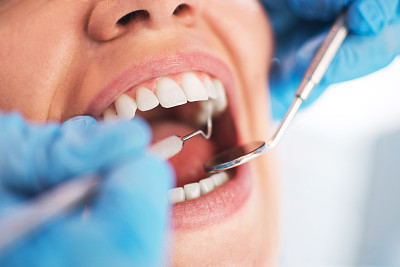Essential Guidelines to Follow Before and After Dental Filling to Ensure Optimal Results and Oral Health
Summary: Ensuring optimal results and maintaining oral health after dental fillings involve several essential guidelines. This article explores vital steps to follow both before and after the procedure, emphasizing preparation, post-treatment care, dietary considerations, and regular dental check-ups. By adhering to these guidelines, patients can enhance their dental treatment outcomes and contribute effectively to their overall oral hygiene. The following sections will delve into each of these aspects, providing detailed insights and recommendations to help patients navigate their dental health journey more efficiently.
1. Preparing for Your Dental Filling

Before undergoing a dental filling, it is crucial to prepare adequately. Start by discussing your medical history with your dentist, including any allergies, medications, or existing health conditions. This dialogue allows the dentist to tailor the treatment plan specifically for you.
Furthermore, it is advised to arrange a ride home if you’re going to receive sedation. Although many fillings are performed using local anesthesia, sedation may be necessary in more complex cases. Having someone there will ensure your comfort and safety post-procedure.
Also, refrain from eating or drinking a few hours before your appointment, especially if sedation is planned. This restriction minimizes the chance of nausea and enhances your overall comfort during the procedure.
2. Post-Treatment Care Guidelines
After receiving dental fillings, it is vital to follow specific care instructions to promote healing and comfort. Initially, you may experience numbness in the treated area due to the anesthetic used. Avoid chewing or biting on that side until the numbness dissipates to prevent accidental injuries.
Additionally, over-the-counter pain relief medication can help manage any post-treatment discomfort. Be sure to follow the recommended doses and consult your dentist if the pain persists longer than anticipated.
Keeping the mouth clean is crucial, so gently brush the area around the filling and avoid hard brushing on the filling itself for the first few days. This caution helps protect the restoration and allows for proper healing of the tooth structure.
3. Dietary Considerations After a Filling
Your diet plays a significant role in the recovery process following dental fillings. It is best to stick to soft foods for the first 24 hours to avoid putting unnecessary pressure on the filling. Foods like yogurt, mashed potatoes, and smoothies are excellent choices during this period.
Avoid sticky or hard foods, which can dislodge or damage the filling. Items like gum, hard candies, and chips should be avoided until the dentist confirms that the filling is secure and healing appropriately.
Furthermore, maintaining good hydration is essential, but be cautious with very hot or cold foods and beverages immediately after the filling. Extreme temperatures can cause discomfort in the affected tooth and may complicate the healing process.
4. Importance of Regular Dental Check-Ups
Regular dental visits play an integral role in maintaining oral health and ensuring the longevity of your dental fillings. Schedule a follow-up appointment with your dentist, typically within a couple of weeks after the filling, to assess the tooth and ensure proper healing.
In addition, routine dental check-ups allow for early detection of potential issues, such as decay or erosion around the filling. Your dentist can closely monitor the condition of existing fillings and recommend timely replacements or repairs if necessary.
Finally, practicing routine oral hygiene at home, including brushing twice a day and flossing daily, complements the benefits of regular visits. This combined approach will help maintain the health of your teeth and fillings while preventing larger issues from developing down the line.
Summary: In summary, adhering to essential guidelines before and after dental fillings is paramount for optimal outcomes. Preparation, post-treatment care, dietary considerations, and regular dental visits are key aspects that can influence your oral health positively. By following these recommendations, patients can greatly contribute to the longevity of their dental interventions and maintain overall oral well-being.
This article is compiled by Vickong Dental and the content is for reference only.



